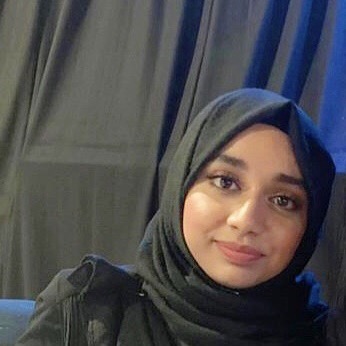A Career in Clinical Genetics
- Maria Chowdhury

- Aug 26, 2020
- 2 min read
By Dr Pradeep C Vasudevan
Consultant in Clinical Genetics & Honorary Professor at University of Leicester (Medical Genetics)
Training Programme Director for East Midlands and Chair of UHL Clinical Ethics Committee
What does your role involve?
Consultants in Clinical Genetics or Genomic Medicine specialise in diagnosing a genetic condition in patients and families. This involves history taking, clinical examination, investigations and counselling people who have a genetic condition or are at risk of developing the condition. There are many subspecialties in Clinical Genetics like Paediatric Genetics, Dysmorphology, Fetal medicine, Cardiac genetics, Neuro genetics, Cancer genetics, Eye-genetics, Endocrine Genetics, Skin Genetics etc. My specialisation is in Paediatric Genetics, Dysmorphology, Prenatal Genetics and Fetal medicine. Clinical Geneticists also liaise closely with our scientists at the laboratory, primary, secondary and tertiary care clinicians involved in the care of the patient and families. We bring to the patient the ability to integrate clinical and scientific knowledge and empower them to make choices based on this information. It is mainly a hospital out-patient clinic based speciality, though we have to see and review urgent in-patient ward referrals and do occasional home-visits depending on various factors.
Why do I love my speciality?
This is one of the few remaining specialities that involves seeing both children and adults. Most of the consultations last 45-60 minutes. There is a variety of patients and each clinic is different. This would mean that we have sufficient time to listen and address patients concerns and do effective counselling, explaining the complex issues and specific risks. There is a lot of continuity of care for patients and families. We do many MDTs with other specialists to coordinate the care and welfare of the patients. I can also take part in research, education and management roles.
There is also scope for specialising in particular genetic conditions and I am interested in Huntington Disease and some of the rare diseases. This is an exciting, dynamic speciality where the state of the art technology in genomics is applied to clinical practice at a fast pace. Most centres do not offer an out-of-hours on care service and therefore the working hours are more civilised. As the speciality is small it is much more friendly that some of the other major mainstream specialties in clinical practice. We attend a lot of regional, national and international meetings to share our experiences and research findings with our fellow colleagues, discuss complex cases to make a diagnosis (patient anonymity and confidentiality is always protected) and to keep in touch with latest development in the field of genetic medicine.
Why should a prospective doctor choose this speciality?
If you have good communication and time management skills, keen in the scientific aspects of clinical medicine, love to work as part of a team or MDT and prefer civilised working hours: this is the speciality for you. There is a great balance between professional and personal life. You are always in touch with the latest developments in the field of medicine, integrating your clinical skills and cutting edge technology.. You also form the bridge between Adult and Paediatric subspecialties, scientific and clinical community and also primary and secondary care. If you want to subspecialise in a particular branch of genomic medicine, you will have the potential to become a world authority earning recognition.





Comments